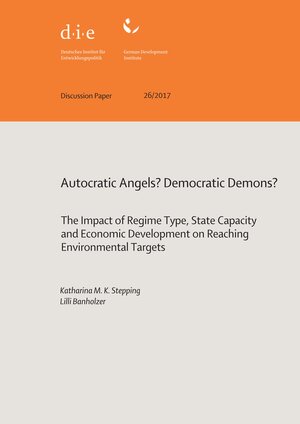
×
![Buchcover ISBN 9783960210504]()
Autocratic angels? Democratic demons?
The impact of regime type, state capacity and economic development on reaching environmental targets
von Katharina M.K. Stepping und Lilli BanholzerThis paper analyses whether variances in effective environmental policies that lead to achieving environmental targets can be attributed to the different types of political regimes, the level of a state’s economic development, or its state capacity. Our analysis is based on a cross-sectional time-series dataset including around 132 countries and covering the period from 2000 to 2010. Our dependent variable is the Ecosystem Vitality index of the 2012 Environmental Performance Index (EPI). Against our assumption, we do not find consistent evidence that democratic regimes outperform autocratic ones when it comes to reaching environmental targets. The level of state capacity as such plays a rather unclear role where higher state capacity does not automatically translate into better environmental protection. However, democratic states with increasing capacity are less harmful to the environment than autocratic states with increasing capacity. The level of economic development on the other hand turns out as the best predictor for environmental performance: Environmental targets are less likely to be reached while economies are developing but, once a threshold has been passed, economic development starts to become positively correlated with environmental friendliness. The effect of economic development is more pronounced for democracies than for autocracies: people’s preferences in a democracy seem to be more influenced by economic development than the preferences of autocratic leaders.


